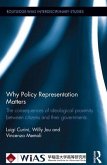Ethics is understood as a social practice developed by human beings through their living together as members of actual communities. Implicit in communal membership is a mutual commitment to pursue one's good within common and binding rules. Whereas individualism holds that the rights and duties of human beings arise from their inherent worth as individuals, communitarianism says that our rights and duties arise from participation in the ethical entity that is created through communal bonds. The book derives from this ethical idea, some basic substantive norms that are valid for every political community. Secondly, it applies the ethical idea to some fundamental variations in communal forms but focuses especially on modern industrial economies and their appropriate political superstructures. The third part of the book discusses attempts to create a global ethical community in the form of a community of states that treat each other and each other's members as ethical ends, despite disagreements over the actual rights that they accord to their members. The key audience for the book is researchers and students in the fields of ethics, political philosophy/theory, social philosophy, legal philosophy, and history of political thought.
Hinweis: Dieser Artikel kann nur an eine deutsche Lieferadresse ausgeliefert werden.
Hinweis: Dieser Artikel kann nur an eine deutsche Lieferadresse ausgeliefert werden.








